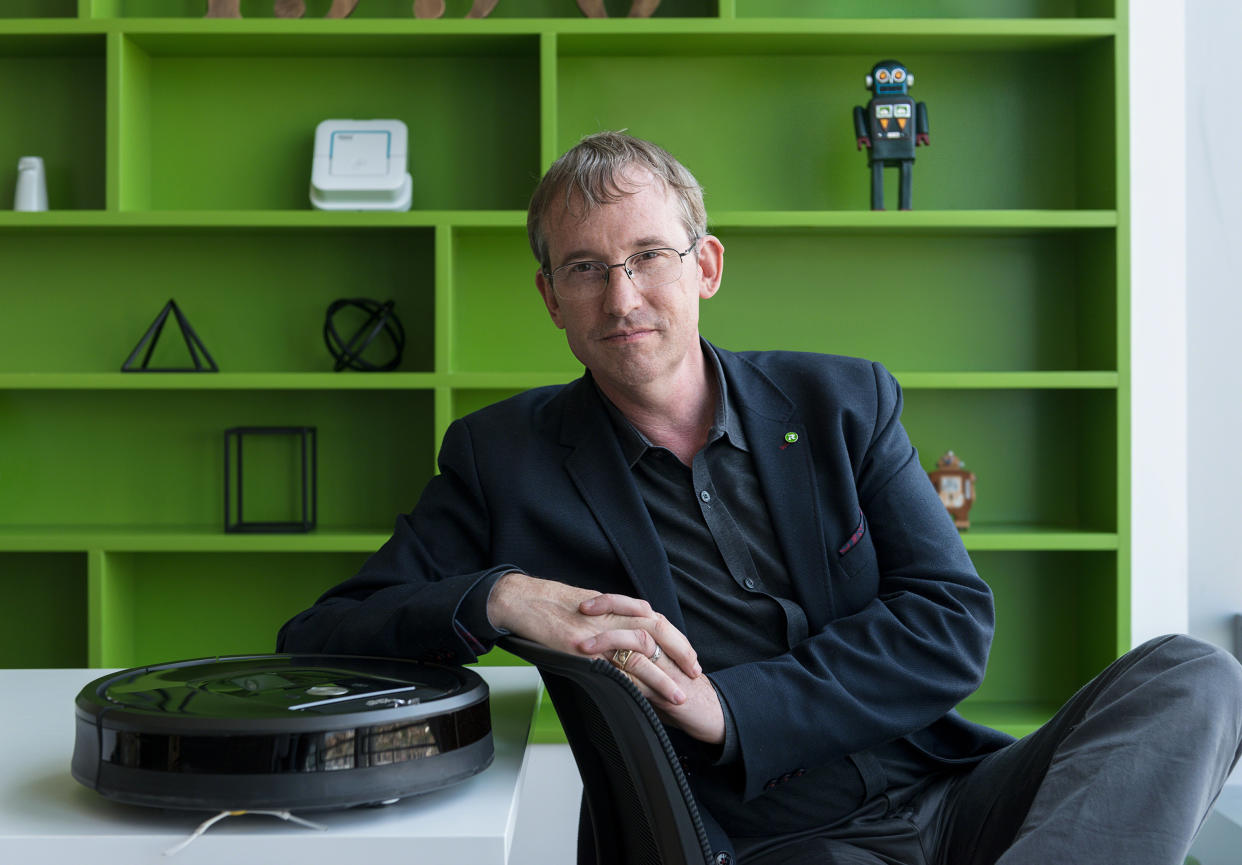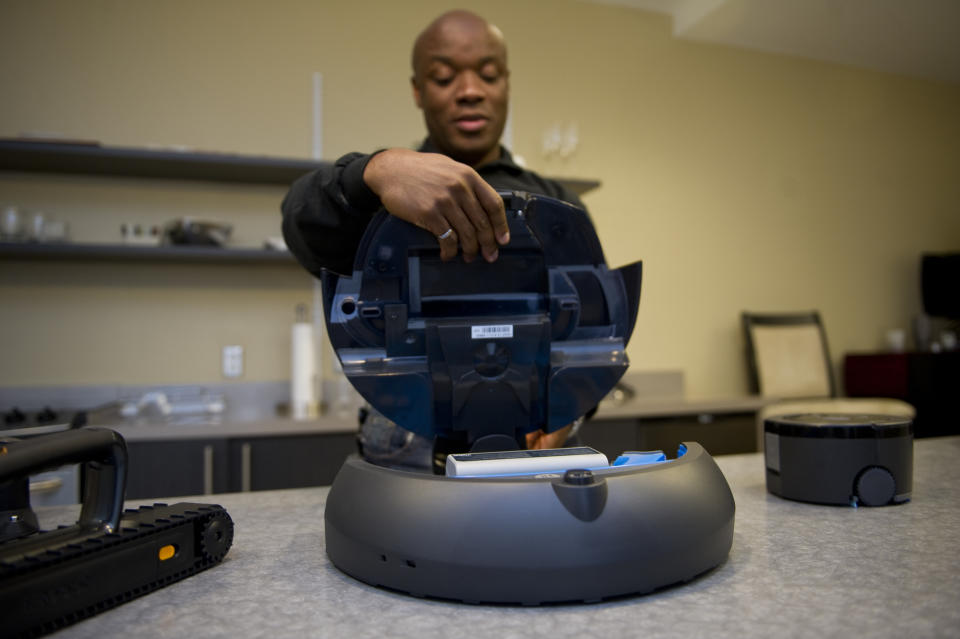iRobot co-founder and CEO Colin Angle talks tariff troubles and data dilemmas

Long before smart homes were on our radar and commanding Alexa to do things became part of daily life, the Roomba vacuum cleaner was zooming around people’s houses tackling dust.
Today, despite increasing competition over the past 17 years, iRobot co-founder and CEO Colin Angle says his Boston-based robotics company been able to maintain a global market share of the robot-vacuum market of about 60%.
However, US tariffs on China in the ongoing trade war are dragging on the company, forcing it to raise prices to counter the 25% levies on imports from China, and hobbling growth in its key North American market.
During the iRobot’s second-quarter earnings call in July, it reported lower-than-expected revenues of $260m and downgraded its full-year growth estimate.
“The trade war between the US and China has hurt both economies,” Angle told Yahoo Finance UK. “And it has also hurt iRobot in an unusual way because our primary competition is the Chinese businesses and our primary market is in North America… so we’re being disadvantaged in the competitive environment.”
READ MORE: Porsche and Boeing partner up to develop electric flying vehicles
Angle said that his products, which currently achieve about 10% household penetration in the US, could easily hit over 30% when he can put pricing at pre-tariff levels again — as they did during Prime Day this year, and saw a 90% increase in demand.
The company is in the process of diversifying its production bases by moving manufacturing out of China and will have a production line up-and-running in Malaysia by the end of the year. While it has applied to qualify for a tariff exemption, Angle does not expect a result until mid-next year.
Data is a dirty word
As the tariff war rages between the world’s two largest economies, iRobot by the nature of its products, is deeply involved in the ongoing dialogue on data privacy.
“Let me voice a frustration about data right now,” Angle said. “If there’s a security breach, there is an outpouring of outrage and people get really upset, then the next day they go and buy the cheapest thing — and the fact that they were outraged about data security the day before has no bearing on their actual behaviour.”
He says consumers don’t want to think about data privacy “because it is a yucky thing to think about,” he added. “But they shouldn’t be surprised when they go and buy the cheapest product that their data is not being respected, because it actually takes real thought and millions of dollars of investment to design a connected product that is secure.”
It turns out even mentioning data privacy is a turn off. “And if I go and put an advertisement out that says iRobot is committed to your privacy my sales go down,” Angle said. “Consumers would rather not have to think about data privacy than believe a claim that a company is going it right.” He describes it as a “thankless position” but “still the right thing to do.”
READ MORE: Berlin's first driverless bus hits the street
He said that while iRobot goes way beyond Europe’s stringent GDPR compliance rules, some of its competitors do not.“Their robots are easily hacked and in fact they are provenly sending your data to— in the case of our Chinese competitors—the Chinese government and no one cares, it does not affect their buying behaviour.
The robotics boss is currently working on what would be a publicly-recognised quality-control mark for companies with good data-privacy practices, so consumers can know whether they can trust products. It would need to be run by a respected third-party organisation he says, as governments have so many constituencies you are unlikely to get something that is truly protective of the consumer. This project may take three or more years to get to, Angle noted, but it is potentially “a path forward”

Share moves
iRobot shares dropped to a 52-week low last week, with some analysts concerned about increasing numbers of competitors entering the space that has long been owned by the robotics pioneer.
Angle does not view low-cost competitors as a big concern, however, as he says there is no money to be made in the “graveyard of low margin, low tech robots.” iRobot is still seeing strong growth outside of North America, especially in Japan and Europe.
“iRobot stock history has shown a fair amount of volatility, as investors are trying to really understand how it is that iRobot continues for nearly two decades to outcompete some of the largest consu mer brands in the world and keep scratching their head waiting for the steamroller to come,” he said. “But we are at a scale where we invest $140 million dollars in R&D and maintain one of the largest R&D organisations focused on robotics in the world.” Annually, the company invests 12-13% of its revenue into R&D.
There is a lot more work to do before we will all be living in seamlessly connected homes. The problem, according to Angle, is that the home has no self-knowledge, and to make it intelligent, it has to be viewed as a robot itself, one that must understand, for example, where the lightbulbs, the TV, the people are, and what happens in which rooms.
“It is not AI that’s lacking, it is awareness of itself and if you sort of personify the home and think of it as a robot, it starts to make sense,” he said. “It is up to those of us who are trying to architect the smart home to make the experience of living in one feel like a really smart thing to do.

